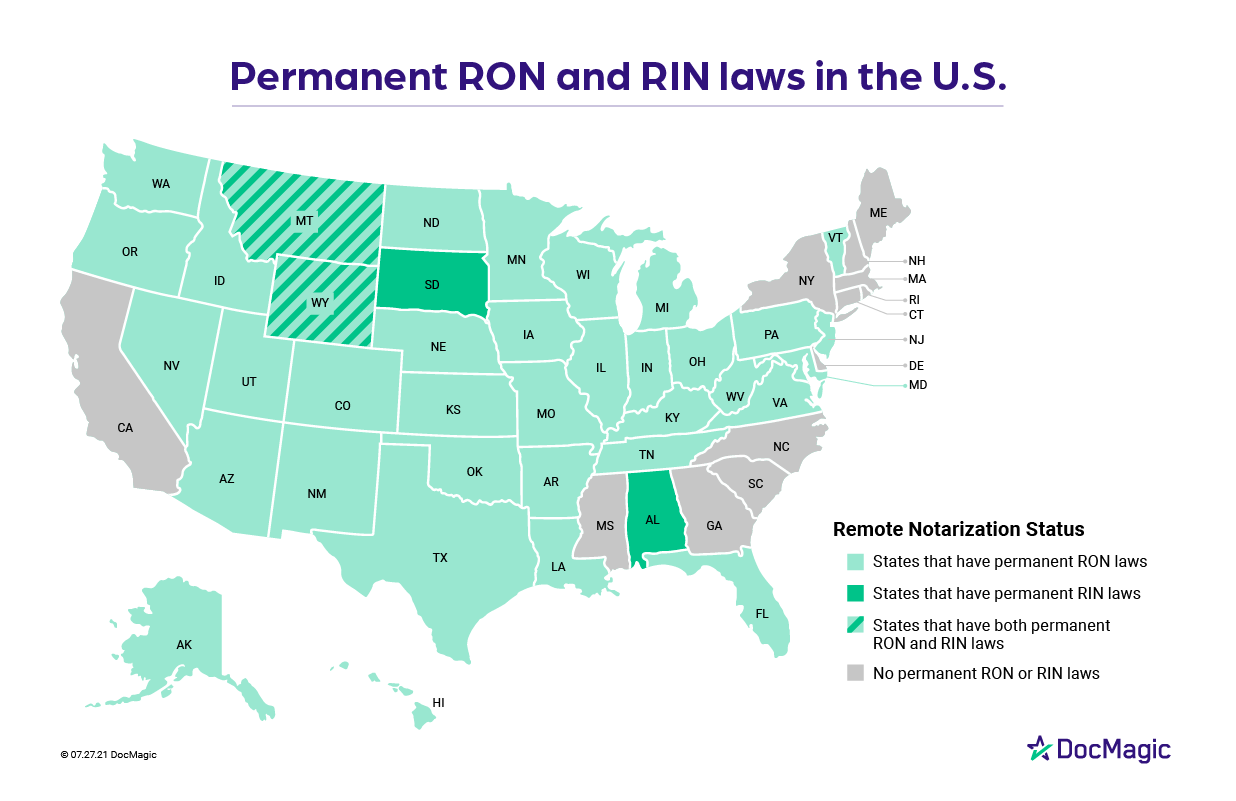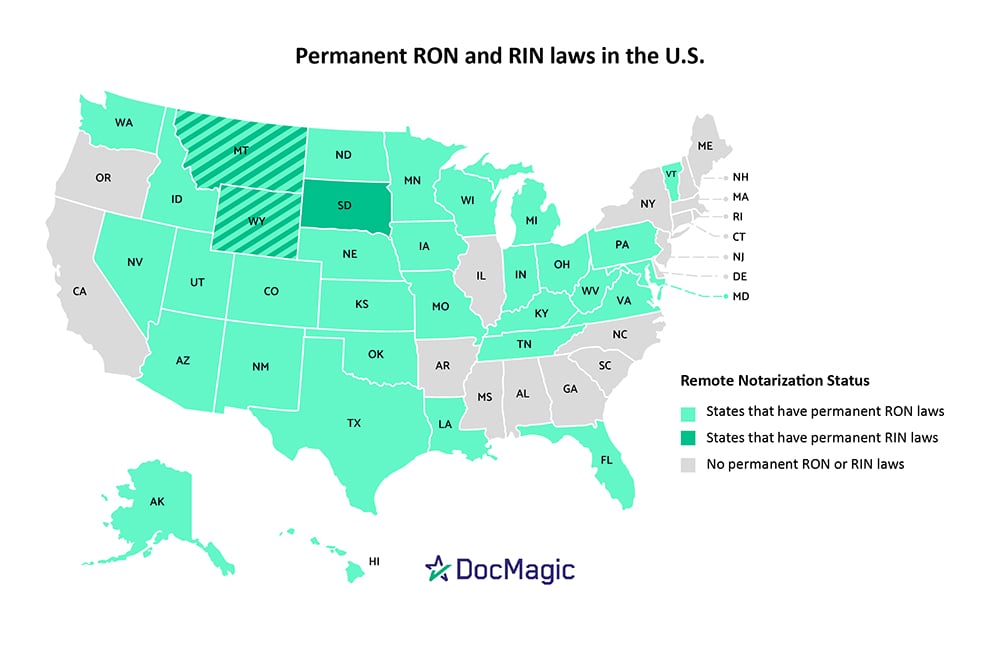Gaining seamless eClosings through notaries at the Agent’s Lounge
Digitally competent remote notaries are vital for mortgage lenders completing electronic closings, as they bring expertise, efficiency, and reliability to the eClosing process. The notary-focused DocMagic Agent’s Lounge stands as a crucial eClosing resource, supporting lenders’ use of DocMagic’s eClosing platform by offering a unique blend of comprehensive notary training, community support, and real-time insights. In a recent discussion, our Senior Training Manager, Steve Truitt, shed light on the complexities of eClosing and the crucial role notaries play in the process.
Truitt emphasized, “Completing the eClose process for our customers has to be clean and easy—and that includes the notaries.” An efficient eClosing process will benefit lenders and borrowers alike, and this process includes notaries who may not be employed by a lender but are integral to the success of the electronic closing.
Read on to learn about the importance of notaries and how DocMagic fosters proficiency in this crucial stage of eClosing.
Why Lenders Need Well-Trained Notaries
Trained notaries play a crucial role in the successful completion of eClosings for mortgage lenders. Notaries with expertise in eClosing accomplish the following:
- Ensure compliance: Trained notaries are well-versed in the legal and regulatory requirements surrounding electronic closings. Their knowledge ensures that the eClosing process adheres to all relevant laws, reducing the risk of legal complications for mortgage lenders.
- Enhance efficiency: Proficient notaries contribute to a streamlined eClosing process. Their familiarity with the eClosing software and electronic notarization procedures allows for quicker and more efficient transactions, reducing the time it takes to close.
- Minimize errors: Training equips notaries with the skills to accurately handle electronic documents and navigate the eClosing platform, which minimizes the likelihood of errors.
- Build borrower confidence: Trained notaries instill confidence in borrowers by facilitating a smooth and professional eClosing experience. This positive interaction reflects well on the mortgage lender, fostering trust and satisfaction among borrowers.
Whether the notaries used in eClosings are employed by the lender or are third parties contacted through DocMagic’s vetted eNotary database, their familiarity with eClosing software is an important aspect of the closing process.
The Role of Notaries in eClosing Efficiency
Addressing the different levels of eClosing familiarity among notaries, Truitt acknowledged the importance of eNotaries being proficient in the pertinent software—like the natively-built remote online notarization (RON) functionality of DocMagic’s all-in-one Total eClose™ platform.
“It has been a great challenge in the fact that RON is the last piece of electronic closing that most people have accepted,” noted Truitt, “and so it’s the least talked about and least understood aspect, I believe. And yet, a crucial one.”
Training notaries goes beyond just software knowledge; it involves familiarizing them with accessing the software and understanding its functions.
Truitt highlighted the significance of notaries in the electronic closing landscape, stating that successful remote eClosings rely on seamless RON transactions. He stressed the importance of ensuring notaries, whether employed by the lender or not, are well-prepared. Their performance reflects on the overall success of the process for borrowers and can even impact borrowers’ perceptions of their lender.
Success Within Reach: Training at the Agent’s Lounge
Despite the importance of notaries within the eClosing process, Truitt noted that there are inherent training challenges that come with self-study courses. On the other hand, a guided experience—facilitated by eClosing experts like those at DocMagic—ensure far-reaching comprehension of the processes involved.
The answer? Our exclusive Agent’s Lounge.
Truitt described the resounding success of the Lounge, a live training space where notaries can participate in simulated eClosings and get immediate answers to their eClosing questions.
A variety of notaries join the lounge, ranging from those experienced with electronic closings to newcomers. Truitt noted how the lounge accommodates different learning styles, offering a live, interactive experience that includes troubleshooting and addressing real-time questions.
The lounge is held every Tuesday and Thursday at 10:00am PST and serves as an open forum for notaries, offering a platform to share insights, troubleshoot challenges, and stay updated on the latest developments.
DocMagic eNotaries and Available Resources
Becoming a certified notary in DocMagic’s database involves a meticulous onboarding process, including a comprehensive landing page with resources and encouragement for new notaries to join the weekly Agent’s Lounge sessions.
Truitt added, “You know, we created the product training page, and we created videos and guidebooks, and they all work hand-in-hand together. We also have FAQ pages and hacks and bonus materials”—all designed to support notaries in becoming proficient with eClosing and gaining a place in DocMagic’s database.
The focal point of the materials is the Lounge. It’s primarily attended by notaries, but we’ve even extended invitations to settlement agents and title agents to round out the comprehensive training environment and welcome input from all angles.
In addition, notaries in our database are regularly encouraged to address the complexities of RON eligibility by exploring our comprehensive resource hub. Notably, a dedicated webpage categorizes states based on RON activity, providing clarity on where RON is active, whether DocMagic is an approved provider for notaries, and links to each state’s Secretary of State. This valuable resource is regularly updated to ensure accuracy.
Adapting to the Future of eClosings
Notaries play a pivotal role in eClosing, and we’re engaged in ongoing efforts to ensure their effective integration into the process. RON has revolutionized the notarial process, offering convenience and efficiency; however, the landscape is dynamic, with eligibility varying across states and updates rolling out frequently.
Having access to tech-savvy remote notaries is an important digital transformation element for lenders. These notaries—a large group of which are always available through the database in our Total eClose platform—bring a mix of expertise, efficiency, and reliability to the eClosing process, ensuring it complies with regulations and elevates the overall experience for everyone involved. DocMagic’s Agent’s Lounge takes center stage as a pivotal resource, spotlighting how holistically we support lenders through our eClosing platform.


